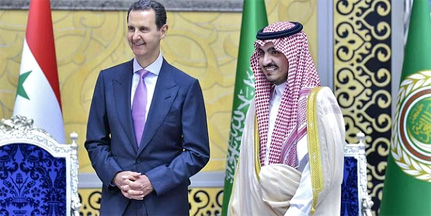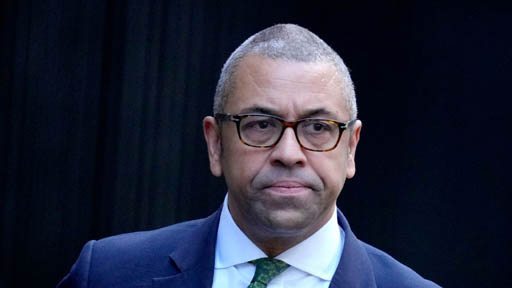
JEDDAH (TIP): Arab leaders, joined by Syrian President Bashar Assad for the first time in more than a decade, were holding an annual summit on May 19 in Saudi Arabia, with a focus on Sudan and other conflicts.
The meeting comes as Saudi Crown Prince Mohammed bin Salman pursues regional diplomacy with the same vigour he previously brought to the oil-rich kingdom’s confrontation with its archrival Iran and regional proxies.
In recent months, Saudi Arabia has restored diplomatic ties with Iran, is ending the kingdom’s yearslong war against Iran-backed rebels in Yemen and has led the push for Syria’s return to the Arab League, 12 years after its membership was suspended over Assad’s bloody crackdown against Arab Spring protests.
The Saudis have even offered to mediate between Ukraine and Russia, following a prisoner exchange deal they brokered last year.
As leaders from the 22-member league meet in the Red Sea city of Jeddah, attention is expected to shift to Sudan. The East African country’s top generals — both of whom have been backed by Saudi Arabia and other Arab states — have been battling each other across the country for over a month, killing hundreds and sparking an exodus from the capital, Khartoum, and elsewhere.
Gen. Abdel-Fattah Burhan, leader of the armed forces, and Gen. Mohamed Hamdan Dagalo of the paramilitary Rapid Support Forces agreed to a pact in Jeddah last week that promised safe passage for civilians fleeing the fighting and protection for aid groups. Saudi Arabia and the United States have meanwhile been leading international efforts to broker a lasting truce.
The fighting has killed over 600 people and caused tens of thousands to flee their homes.
The Arab League is also expected to reiterate its perennial criticism of Israel‘s treatment of the Palestinians at a time of soaring tensions.
In recent years, Assad’s forces have recaptured much of Syria’s territory from insurgents with help from Russia and Iran. Saudi Arabia had been a leading sponsor of the opposition at the height of the war but pulled back as the insurgents were eventually cornered in a small pocket of northwestern Syria.
“Saudi Arabia’s push to bring Syria back into the fold is part of a broader shift in the kingdom’s approach to regional politics,” says Torbjorn Soltvedt, a leading Mideast analyst at the risk intelligence company Verisk Maplecroft. “The previously adventurist foreign policy defined by the Yemen intervention and efforts to confront Iran is now being abandoned in favour of a more cautious approach,” he said.
There are some Arab holdouts to Damascus’ rehabilitation, including gas-rich Qatar, which still supports Syria’s opposition. Qatar has said it won’t stand in the way of the Arab consensus on readmitting Syria but would also not normalize bilateral relations without a political solution to the conflict.
Western countries, which still view Assad as a pariah over his forces’ aerial bombardment and gas attacks against civilians during the 12-year civil war, have criticized his return to the Arab fold and vowed to maintain crippling sanctions. That will likely continue to hamper any reconstruction. Years of heavy fighting involving Assad’s forces, the opposition and jihadi groups like the Islamic State group left entire villages and neighbourhoods in ruins.
(AP)





Be the first to comment